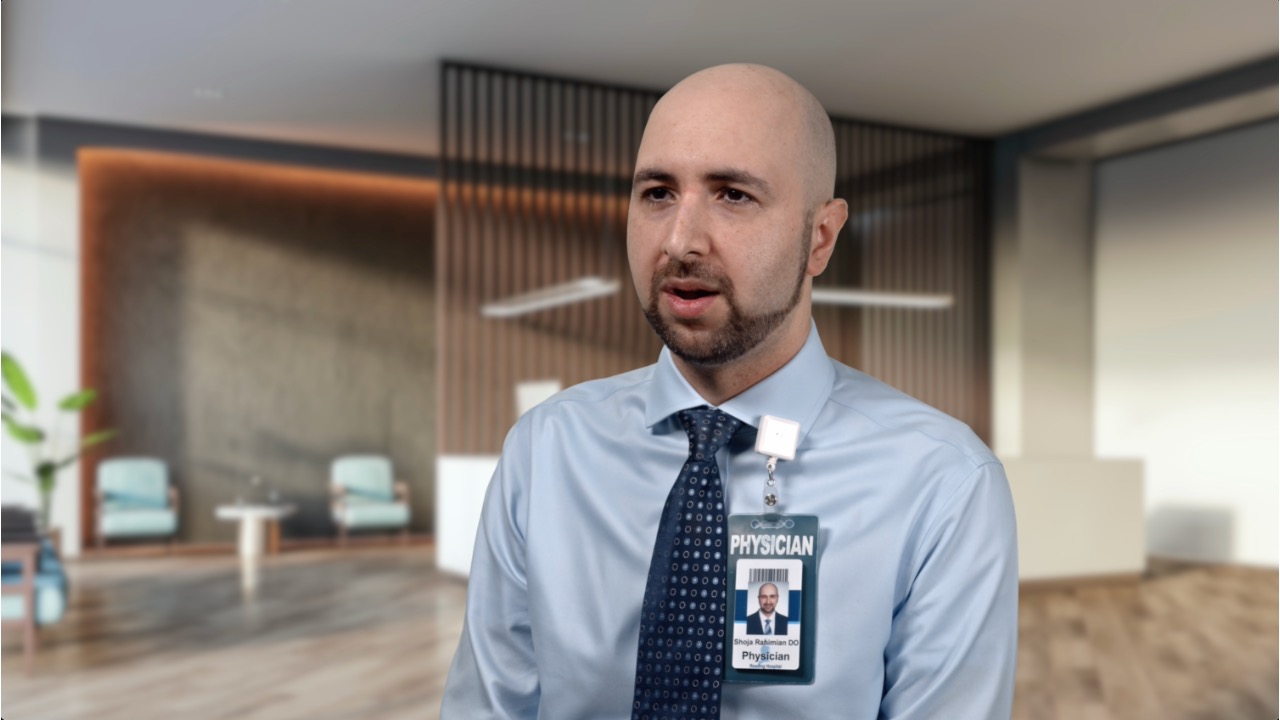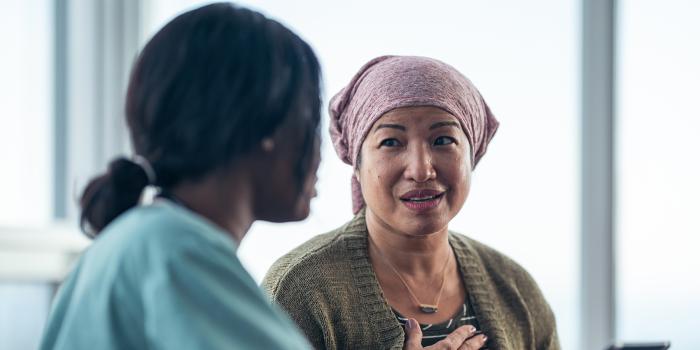At McGlinn Cancer Institute, we use screening and risk assessment tests to find cancer before symptoms appear or to determine your risk for certain cancers. If you face a cancer diagnosis, we help you understand the genetics behind it.
Cancer Screenings to Uncover Precancerous and Cancerous Conditions
Cancer screenings are used to uncover certain types of cancer, including breast, cervical, colon, and lung cancer. Regular screenings may find cancer early, which is when treatment often works best. If you have an abnormal test result, more tests are likely needed to determine whether cancer is present. Certain cancers currently do not have reliable screening tests. These include ovarian, pancreatic, prostate, or thyroid cancer. Talk to your primary care doctor about regular screenings and your risk for cancer.

“Dear Cancer: You Will No Longer Be in Control.”
Dr. Rahimian knows the journey through cancer is never easy — but he also knows that with strong support, expert care, and personal connection, hope can take the lead.

“Dear Cancer: You Can Never Weaken the Human Spirit.”
Infusion nurse Irene Paige brings strength, comfort, and expert care to patients receiving chemotherapy and immunotherapy at McGlinn Cancer Institute.
Cancer Signs and Symptoms
There are some general signs of cancer but having any of these does not mean you have cancer. If you experience any symptoms over a long time, please talk to your doctor.
- Changes in bowel
- Cough that doesn't go away
- Fatigue that does not get better with rest
- Fever
- Pain or a headache that does not go away or get better with treatment
- Skin changes including darker-looking skin, yellowish skin or eyes, or reddened skin
- Thickening or lump in the breast or other body areas
- Trouble swallowing
- Unexplained weight loss of 10 pounds or more
- Unusual bleeding or discharge
Cancer Screenings and Tests
- Colonoscopy. This screening can view the entire colon and rectum and detect abnormal tissue, such as polyps. During the test, the doctor can take tissue samples (biopsies) if any abnormalities are present.
- Low-Dose CT. (Also called a low-dose CT scan.) This imaging test is for people with a high risk of lung cancer but who have no symptoms. It uses low-dose computed tomography to detect cancer.
- Mammography. This screening takes an X-ray picture of the breasts and is used to identify early signs of breast cancer.
- Oral screening. A doctor or dentist looks inside your mouth and also feels the tissues there to check for lumps or other abnormalities.
- PAP test. This test is used to find abnormal cells in the cervix. It can find cervical cancer early, when the chance of being cured is very high.
- PSA test. This blood test is used to screen for prostate cancer and measures the amount of prostate-specific antigen (PSA) in your blood.
- Skin screening. This is a visual exam of the skin. It looks for moles, birthmarks, or other marks that are unusual in color, size, shape, or texture.

Cancer Risk Assessments and Genetic Testing
Cancer is caused by certain changes to genes that control how our cells grow and divide. Some genetic changes that impact cancer can be passed down within a family (inherited). This can increase the risk of developing certain cancers. Knowing about an inherited genetic change and your risk for cancer allows you and your providers to be proactive and to perform additional cancer screening. If you have cancer, this information can also help make decisions about your treatment.
Talk to your provider about your personal and family history of cancer. Your provider can refer you to our Family Cancer Risk Assessment Program where you can speak to a genetic counselor and get additional information.
Equipped with genetic counselors and a nurse practitioner, McGlinn Cancer Institute has more than 25 years of combined experience in cancer genetics. Our team of genetic experts determine which patients would benefit from genetic testing.
When Talk to Your Provider about Genetic Testing
- You or a family member is diagnosed with cancer under 50 years of age
- Personal history of breast, colon, ovarian, pancreatic, or prostate cancer
- You or a family member is diagnosed with less-common cancers such as pancreatic cancer, ovarian cancer, or male breast cancer
- Three relatives on the same side of the family with cancer
- Ashkenazi (Eastern European) ancestry, along with a history of breast or ovarian cancer
- Known genetic mutation in the family
What to Expect During a Genetic Counseling Visit
- Review of your medical and family history
- Personalized risk assessment for hereditary cancer
- Discussion of the risks, benefits, and possible outcomes of genetic testing
- Review of insurance coverage and laws to protect against genetic discrimination
- Development of a risk reduction/monitoring plan based on genetic results and history
If you choose to have genetic testing, a blood or saliva sample is collected during your appointment. When your results are available, we review them with you and develop a personalized screening plan based on your risk factors.
The Genetic Information Nondiscrimination Act
An employer or health insurance company cannot treat someone differently because they have a higher chance of getting cancer due to family risk or genetic test results. The federal law to protect against this is called The Genetic Information Nondiscrimination Act (GINA). Your genetics provider can answer more questions about this law.
High-Risk Cancer Clinic
Learning that you have a high risk for cancer can be distressing. McGlinn Cancer Institute’s High Risk Cancer Clinic is a special clinic for monitoring patients that have a higher risk for cancer. We have the only certified cancer genetic risk assessment nurse practitioner in Pennsylvania, with specialized training to help you stay up to date with the latest recommendations for cancer screening and options for cancer risk reduction. Resources are available for patients and families that have a higher risk for cancer. We will help connect you with other specialists, if needed.



